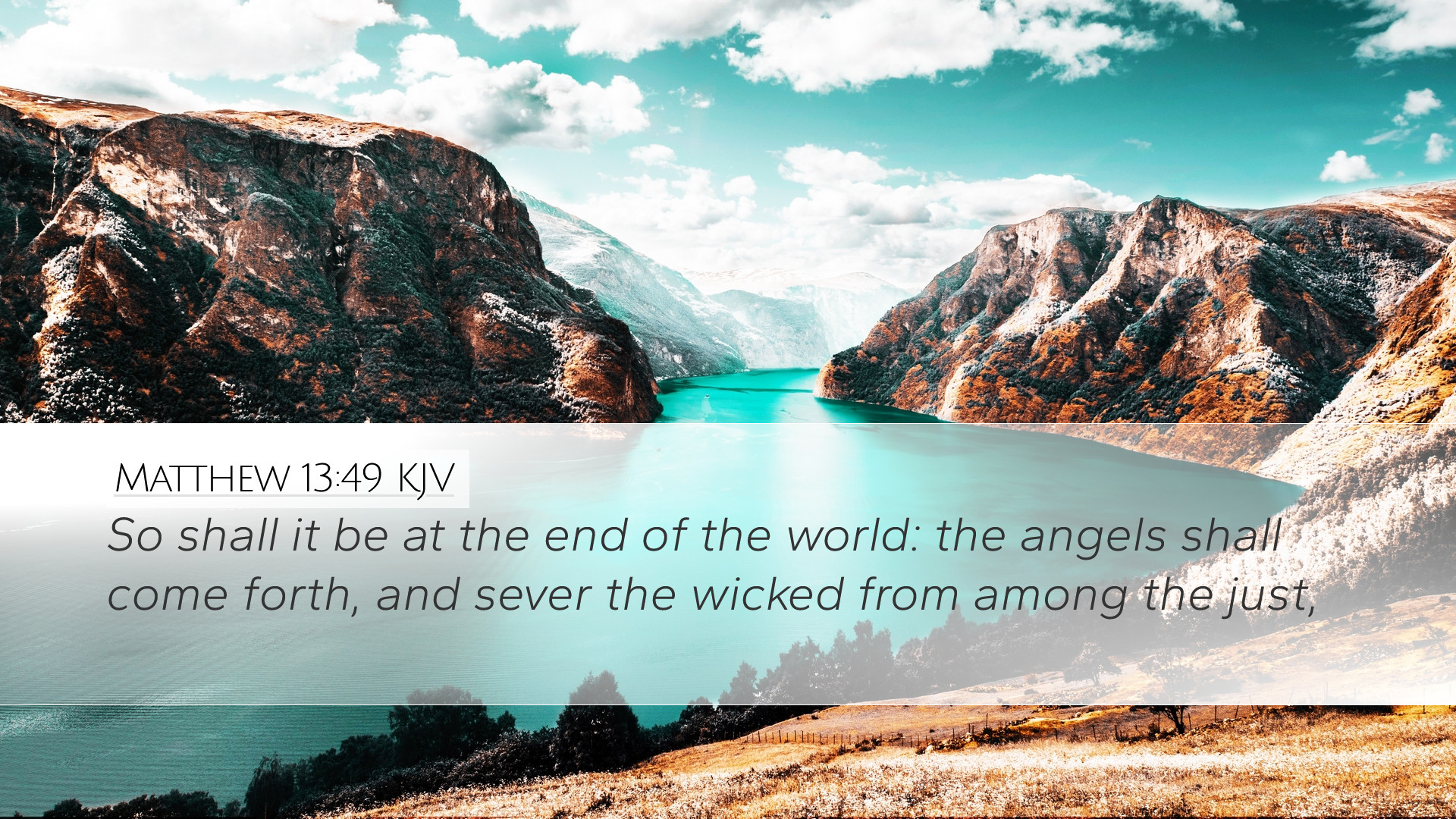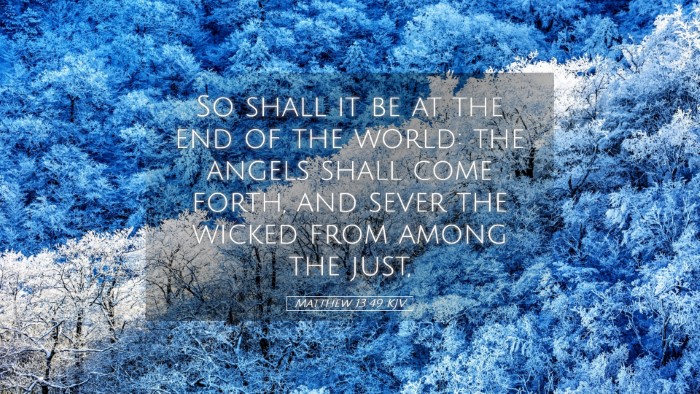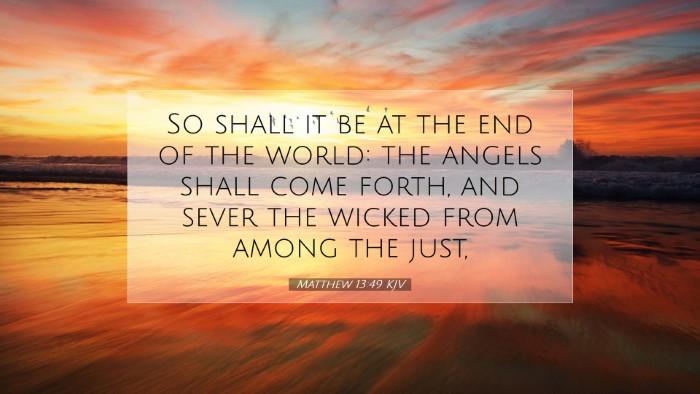Commentary on Matthew 13:49
Verse: “So it will be at the end of the age. The angels will come forth, separate the wicked from among the just.”
Introduction
Matthew 13:49 provides a poignant insight into the final judgment and the ultimate separation of the righteous from the wicked. This verse is situated within the context of Jesus' teaching through parables, specifically addressing the kingdom of heaven. Various public domain commentaries shed light on this profound statement, allowing pastors, students, theologians, and Bible scholars to glean deeper understanding.
Contextual Analysis
The parable of the net, which precedes this verse, serves as a metaphor illustrating the gathering of souls at the end of the age. The imagery of fishing and the net captures the essence of how the Kingdom of Heaven operates and emphasizes the divine authority in judgment.
Matthew Henry's Commentary
Matthew Henry posits that this verse underscores God's sovereignty over His creation. He explains that as the net gathers fish of every kind, so too the Gospel reaches a mixed multitude of people. At the culmination of time, it is the angels' role, ordained by God, to execute His judgment, thereby highlighting His omniscience in distinguishing the righteous from the unrighteous.
Key Insights from Matthew Henry
- Divine Separation: Henry emphasizes that the role of angels is both significant and practical. They are the ministers of God’s will, acting on His behalf to enact separation.
- Moral Responsibility: The parable reflects human moral choices while explicitly indicating that divine judgment relies solely on God’s righteous criteria.
- Hope for the Righteous: The verse assures believers that their faith and righteous living will lead them to eternal reward, removing any doubt about their future in the kingdom.
Albert Barnes' Notes on the New Testament
Albert Barnes focuses on the eschatological implications of Matthew 13:49. He interprets “the end of the age” as a significant marker in biblical prophecy indicating the closure of earthly existence and the commencement of the eternal state. Barnes underscores the urgency of repentance and highlights the joy of eternal life that awaits the just.
Key Insights from Albert Barnes
- Judgment Day: Barnes amplifies the gravity of the statement by asserting that the day of judgment will be definitive, with a clear distinction made between the wicked and the just.
- Angelic Role: He elaborates that angels have a substantial function in God’s plan, acting as agents to gather and judge, which showcases the organized structure of divine governance.
- Encouragement for Believers: Barnes provides encouragement for Christians, asserting that their struggles against sin will receive righteous recompense, contrasting with the fate of the wicked.
Adam Clarke's Commentary
Adam Clarke approaches this verse with a theological lens, detailing the prophetic nature of Jesus’ teaching. Clarke emphasizes that the separation wrought by angels is not arbitrary, but a reflection of divine justice. He also connects this end-time event to various other scriptural references to judgment, reinforcing the message of accountability.
Key Insights from Adam Clarke
- The Role of Choice: Clarke stresses that the separation is based on the choices individuals make during their lifetime, which reflects the essence of free will.
- Universality of Judgment: He relates the significance of this judgment to the universality of God’s sovereignty; all will stand before Him, with the angels serving as participants in that eternal accountability.
- Spiritual Vigilance: Clarke calls on believers to remain vigilant and steadfast in their faith, bearing in mind the certainty of this divine separation.
Theological Implications
This verse is rich with theological implications pertaining to salvation, judgment, and divine justice. It begs reflection on the nature of the Kingdom of Heaven and presents a sobering reminder for all adherents of faith.
Reflection on Judgment
The distinct division between the righteous and the wicked prompts profound questions about one’s moral standing before God. The collective insights from the aforementioned commentaries compel us to assess our lives in alignment with biblical teachings.
Call to Action
For pastors and theologians, this passage serves as an urgent call to preach the robust truth of the Gospel. Encouraging moral integrity and spiritual vigilance enables believers to partake in the assurance of their final destination. It reiterates the importance of engaging with the community, sharing the gospel, and exemplifying Christ-like behavior.
Conclusion
Matthew 13:49 encapsulates the weight of divine judgment and the hope reserved for believers. As interpreted through the lenses of esteemed commentaries by Matthew Henry, Albert Barnes, and Adam Clarke, the profound nature of this passage challenges every individual to embrace their faith with absolute seriousness and commitment. This verse should ignite a passion in the hearts of believers to not only seek righteousness but to actively participate in the advancement of God's Kingdom during their sojourn on Earth.


